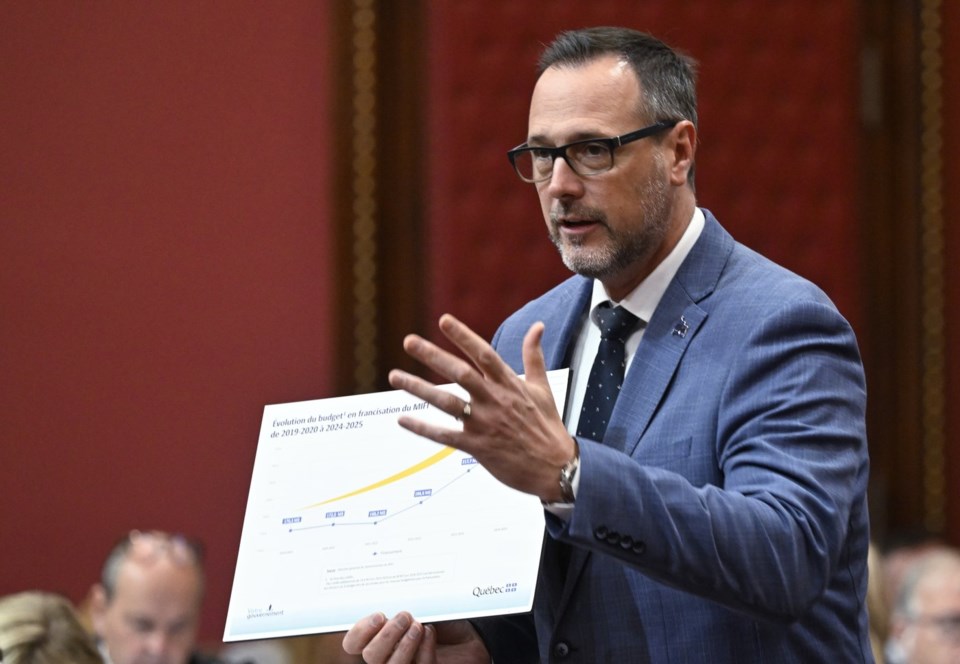MONTREAL â The Quebec Liberal Party has called for the French language commissioner to investigate the cancelling of some French-language training courses for newcomers to the province.
Citing an âongoing series of closures of francization programs,â the Opposition party announced Saturday morning in a news release that its critics for the French language and French classes, André Albert Morin and Madwa-Nika Cadet, sent a letter to the Commissioner of the French Language.
The letter asks commissioner Benoît Dubreuil to âinvestigate to ensure that the right to French language learning services, included in the Charter of the French Language, is respected,â the release said.
The Liberals are blaming the Coalition Avenir Québec governmentâs budgetary decisions, which it says, âjeopardize the possibility for immigrants to become French speakers within a time frame that would facilitate their integration into the job market and into Quebec society.â
In several interviews this week, Quebec's Immigration Minister Jean-François Roberge blamed school service centres for the closures, saying his government has actually increased budgets for French-language courses.
However, media reports this week described education centres forced to cut back on programming because of budget constraints imposed on them by the province, which have also resulted in teachers losing their jobs.
âThese cuts have led, in recent weeks, to the cancellation of French courses, particularly in the regions of Abitibi-Témiscamingue, the Capitale-Nationale, Estrie, Laval , the Laurentides, Mauricie and Montreal,â the release said.
Aside from cancellations, the Liberals say average wait times for full-time French study has recently doubled to four months while people who are enrolled are sometimes forced to travel hundreds of kilometres to attend class.
"There is an impression of disorder that suggests the government is unable to meet its obligations under the Charter of the French Language,â the letter sent to the Commissioner late Friday stated.
The closures come at a time of increased demand for the classes, with Quebec currently hosting around 600,000 temporary immigrants. Quebec has repeatedly asked the federal government for more power and funds to deal with the surge in newcomers, but the CAQ leadership has also come under fire from Ottawa.
Federal Public Services and Procurement Minister Jean-Yves Duclos said Friday that the $750 million the federal government is spending to help the province with newcomers is not being fully used.
"We absolutely must invest the necessary sums in francization," said Duclos. "If we want new arrivals to be able to reach their full potential, we have to offer them appropriate services."
Cadet told The Canadian Press in an interview the government is clearly struggling to provide the right to learn French.
"So in our opinion, the commissioner should have the mandate to investigate this, and that's why we wrote him this letter,â Cadet said, but would not say whether her party would increase French-language budgets.
Last February, Dubreuil stated it would cost between $10.6 and $12.9 billion for all temporary immigrants to complete intermediate-level training in French.
Cadet responded by saying, âI don't think we're in that type of scenario. I think there's a way to better deploy the offer and make sure there are no service breakdowns.â
--With files from La Presse Canadienne
This report by The Canadian Press was first published Oct. 26, 2024.
The Canadian Press



